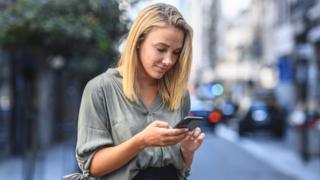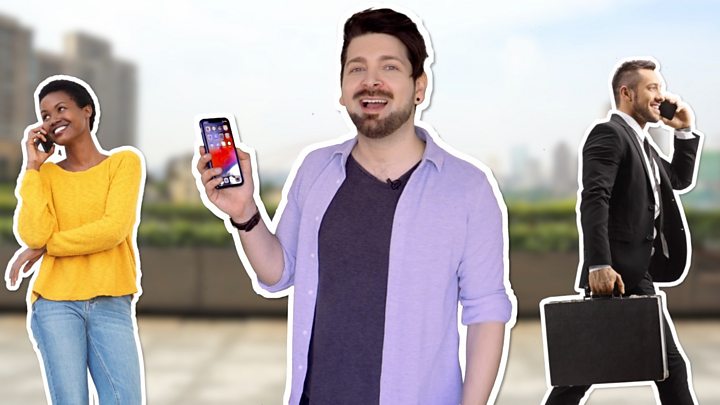 Image copyright
Getty Images
Image copyright
Getty Images
Millions of people in the UK will soon be asked to download a smartphone app, which will monitor who they've been near.
It's part of a contact tracing programme to combat coronavirus.
What is contact tracing?
Contact tracing is a system used to slow the spread of infectious diseases like coronavirus. It's already being used in Hong Kong, Singapore and Germany.
One method is for someone who's been infected to list all the people with whom they've recently been in prolonged contact.
Those people will then be tracked down by phone or email, and potentially asked to self-isolate.
Another way of tracing is by using a location-tracking mobile app, which identifies people the patient has been in contact with.
The advantage of the app is it can identify people the patient may not know - like fellow passengers on a bus.
However, it will only identify people if they also have the app.

What will contact tracing look like in the UK?
Health Secretary Matt Hancock says 21,000 contact tracers have been hired, including 7,500 healthcare professionals.
They will gather contacts from patients and trace those people by phone or email.
A free NHS app will also track when users come into contact with each other. Once downloaded, it will run in the background of your phone, provided Bluetooth is switched on.
If a user develops coronavirus symptoms, it is up to them to let the app inform the NHS.
That message may trigger an anonymous alert to other users with whom they recently had significant contact, potentially asking them to go into quarantine or be tested.
Has the Isle of Wight trial been successful?
A trial programme is under way on the Isle of Wight, and if this is judged successful, a national programme will follow.
Mr Hancock says the elderly population on the island - and lower number of smartphone users - made it a useful place to study the spread of a virus.
Relatively restricted travel to the island was also a factor.
As of 14 May, just over half of the island's 140,000 residents had downloaded the app.
However, security flaws have been flagged in the app which researchers say pose risks to users' privacy, and could be used to prevent alerts being sent.
GCHQ's National Cyber Security Centre has told the BBC it was already aware of most of the issues raised and is in the process of addressing them.
Will contact tracing help end lockdown?
Contact tracing has been credited with helping to lift restrictions in other countries, when combined with other measures.
South Korea never went into lockdown thanks to an early strategy of extensive tracing and mass testing. There was manual monitoring of credit card transactions, CCTV and mobile phone tracking to piece together where people had been.
The UK probably won't use that level of tracking but a widely used app might help.
However, take-up would have to be massive for the virus to be totally supressed. Academics advising the NHS estimate 80% of smartphone users - 60% of the population - would have to download and use it.
For a sense of scale, it's worth considering that even a successful app such as Whatsapp has only been downloaded by 67% of UK smartphone users.
People would also have to be honest about displaying any potential symptoms, and inform the NHS.
What if I don't have a smartphone?
The app only works on smartphones. If you don't have one, you should be able to report symptoms and order tests over the phone and via an online service.
Everyone who displays symptoms will be asked to record recent contacts online or via telephone so tracers can reach all those potentially at risk.
What can the government do with my data?
Not everyone is happy with the government and third parties being given access to people's data. Civil rights group Liberty says the government must take the risks seriously - using the app should not be a condition to leaving the lockdown or returning to work.
''Millions of us are going to need to trust the app and follow the advice it provides,'' says NHSX, the technology arm of the health service. It says the information gathered will only ever be used for health and research purposes.
The UK app will use a "centralised model", meaning the matching process will take place on a computer server.
An alternative, decentralised model was put forward by Apple and Google, where the exchange happens on people's handsets.
The tech giants say their version makes it harder for hackers or the authorities to use the computer server logs to track and identify specific individuals.
But NHSX says its centralised system will help give it more insight into how the disease spreads.